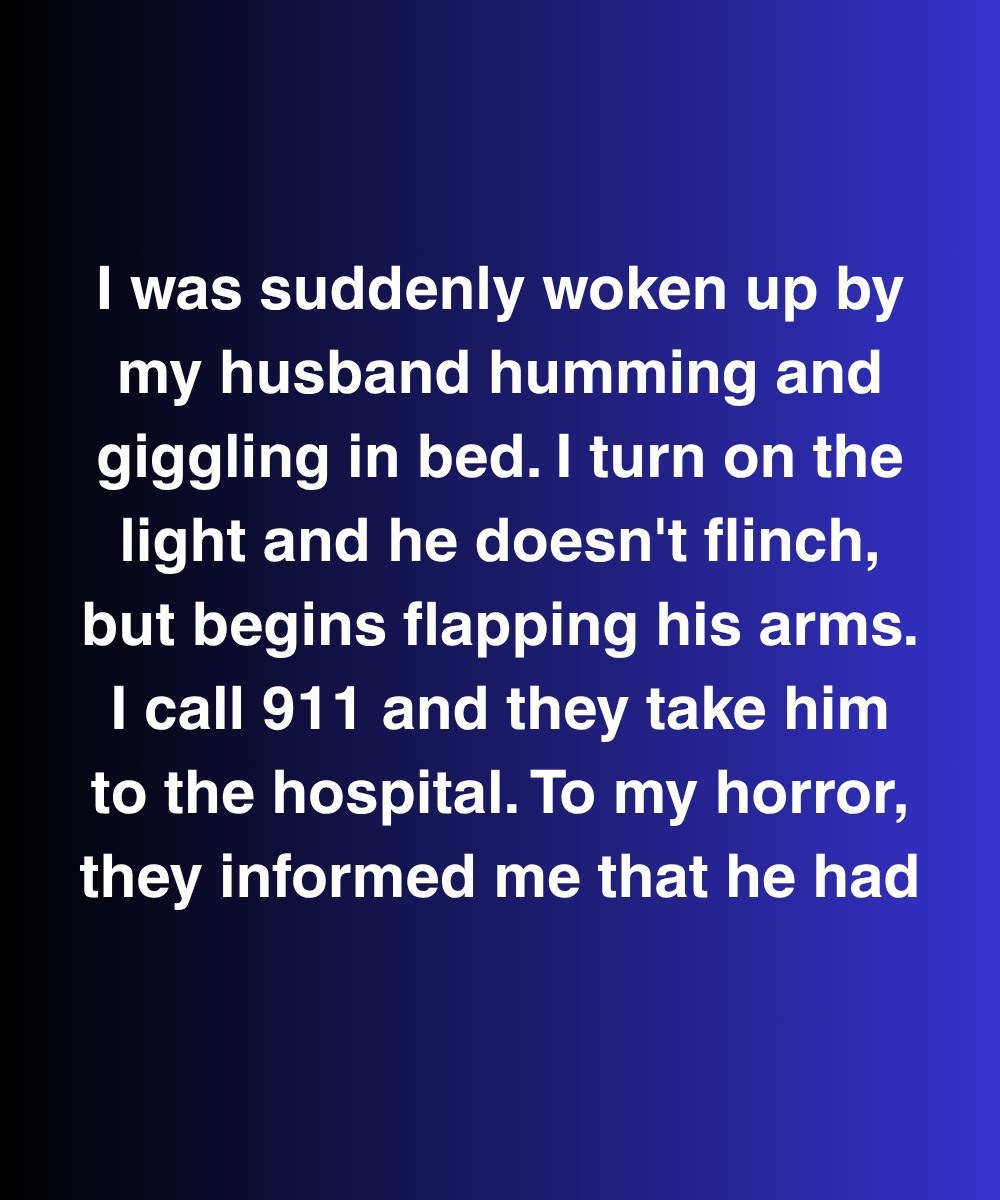I woke in the middle of the night to the sound of my husband humming and giggling beside me. When I turned on the light, he didn’t react, just began flapping his arms strangely. Alarmed, I called 911, and at the hospital they told me he’d had a mild seizure, possibly from stress or lack of sleep. I sat there numb, watching his still body hooked to machines, when a nurse asked if he’d shown any unusual behavior lately.

I almost said no—but then I thought about the odd changes over the past few months. He’d been staying up late, claiming to work, shutting his laptop whenever I walked in. Once I overheard him mention a name I didn’t recognize—Nadia—and he brushed it off as someone from procurement. His phone was always on silent, taken even into the bathroom. I told myself it was stress from the financial strain on his small logistics firm, which had barely survived the pandemic. But now, seeing him like this, I suspected more.
The doctors kept him overnight, and when I went home for clothes, I instinctively grabbed his laptop. At the dining table, I opened it—no password. On the desktop was a folder labeled “Invoices_2022.” Inside was a spreadsheet, not invoices, with names, dates, and amounts totaling $48,700 over nine months. Every payment was marked “N.L.” One entry read: “E-transfer – Nadia L. – $4,200 – Tuition Payment.” My stomach sank. Searching his emails for “Nadia” brought hundreds of results—messages about feelings, regrets, and dreams, nothing to do with work. One subject line read, “Still thinking about your necklace in Santorini,” and there was a photo of him kissing a young woman on the cheek in a Montreal café, a trip he had claimed was for a conference. She was younger, with pink curls and gold hoop earrings. I didn’t sleep at all.
The next day at the hospital, he was acting normal, joking with nurses, texting when he thought I wasn’t looking. That night at home, I asked, “Who’s Nadia?” He claimed she was the daughter of a family friend, that he was helping her through school. When I pressed about the photos, the kiss, and the necklace, he said he’d gotten “emotionally confused” and that lines had blurred. When I asked if he’d slept with her, his hesitation was all the answer I needed. I left and stayed at my cousin Rukhsana’s, who welcomed me without question. The next morning he texted, begging me not to tell anyone, promising to cut her off. But this wasn’t just about cheating—it was about years of lies, letting me pinch pennies while sending thousands to someone else.
At Rukhsana’s, I looked up Nadia online and found she’d tagged him in a photo under a different name—“Shawn.” My husband had a second identity. I quietly consulted a lawyer and learned he’d taken a second loan on our house using my social insurance number. When I confronted him for full financial records, he was defensive, then silent, finally handing me a box of papers: revenue down 60%, credit cards maxed, promises to fund Nadia’s lifestyle brand. That was enough—I filed for divorce. Three months later, a law firm in Vancouver sent me a letter: Nadia had filed a fraud complaint against him, claiming he’d pretended to be divorced, promised her money, then disappeared.
She had proof—screenshots, voicemails, even an admission of forgery. My lawyer used this to show his pattern of deceit, protecting my assets, saving my credit, and letting me keep the house. His business collapsed after Nadia went public with a viral video titled “The Married Man Who Lied to Me and Stole My Twenties.” I felt a flicker of satisfaction—but mostly relief. I returned to teaching part-time, reconnected with friends, and joined a women’s support group. Months later, at a craft fair, I met Teo, a retired mechanic who taught welding to at-risk youth. We talked about plants and the nuisance of Facebook Marketplace. No sparks, just comfort. We’re taking it slow, and I’m watching for red flags. The truth is, lies often hide in plain sight, wrapped in years of trust. But when you finally see them, they set you free. If your gut tells you something is wrong—listen. One day, you might open a laptop and realize everything has changed.





